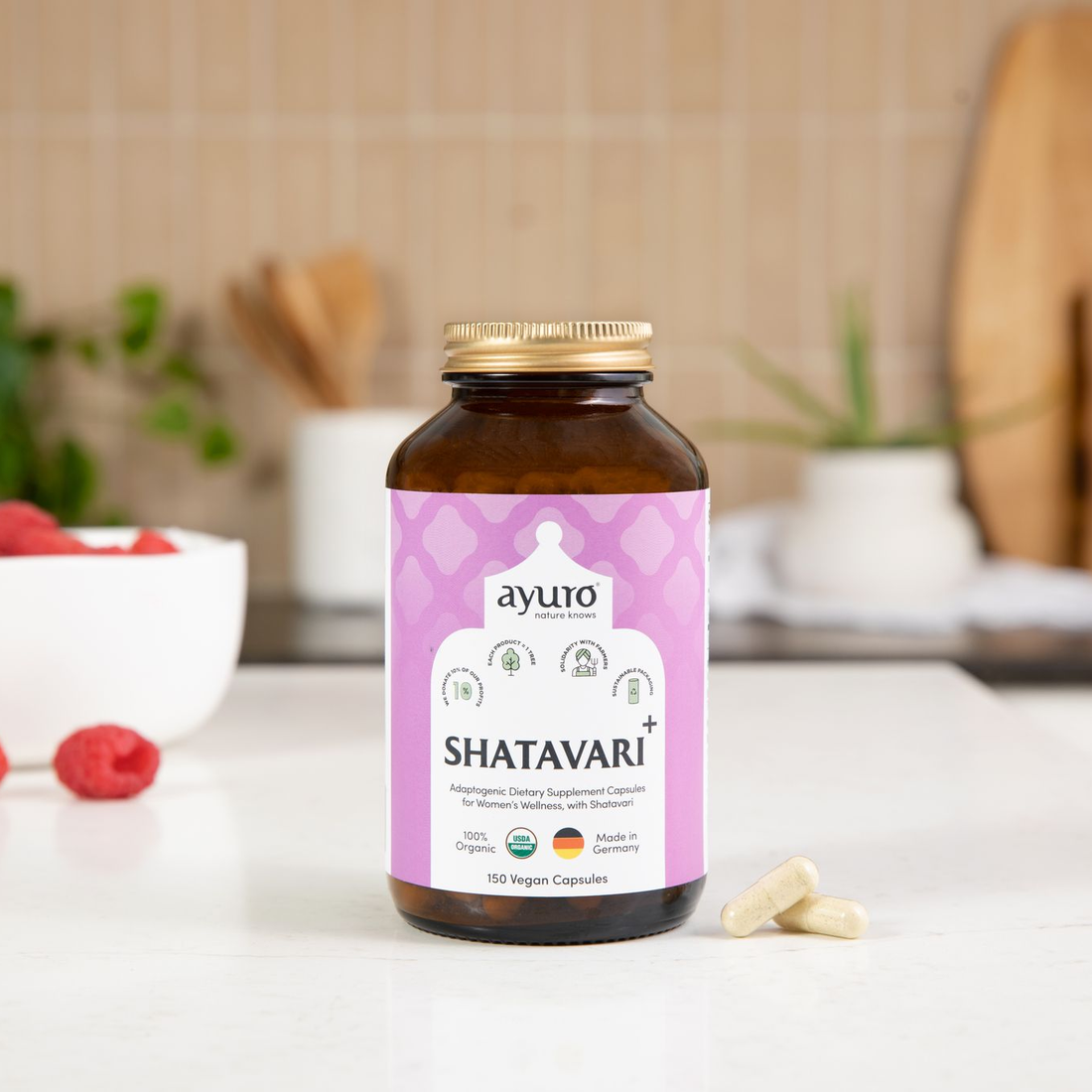Meditation has emerged as a captivating and promising avenue in the quest for longevity. It's gained significant attention for its potential effects on enhancing physical, emotional, and mental well-being. Could it hold the key to unlocking a longer, healthier, and more fulfilling life?
This article explores the link between meditation and longevity. We start with defining meditation and briefly examining its connection to mindfulness and yoga practices. We then delve into the many incredible health benefits of meditation, mindfulness, and yoga. Finally, we leave you with some tips to start a regular meditation practice.
What Is Meditation?
Meditation is an ancient practice that uses various techniques to focus and calm the mind, bringing it to the present moment in a space of warmth and kindness to ourselves and others. Meditation plays a vital role in various spiritual traditions and in yoga philosophy.
Research suggests that meditation may drastically reduce stress and anxiety, relieve the symptoms of depression, and may even help with pain relief, lower blood pressure, and more, especially when combined with regular yoga practice. It enhances well-being and self-awareness.
Mindfulness - And How It's Linked To Meditation
Practicing mindfulness is a basic human ability to be in a state of awareness of where we are without being overly reactive or overwhelmed by what's happening around us. It's something everyone can do, but easier to achieve with daily practice.
Whenever you become entirely aware of what you are experiencing through your senses or your mental state through awareness of what you're thinking and feeling, you're in a state of mindfulness. Mindfulness helps you live in the moment and wake up your inner workings while suspending judgment.
There's a misconception that mindfulness and meditation are the same. Although both work well for our general well-being, they are different. The main difference is that mindfulness is a simple practice you can apply to daily activities, while meditation is a focused practice that requires singular attention.
Both have incredible benefits, and the good news is you can practice mindfulness for various mindfulness meditation practices, including the ancient Indian philosophy of yoga, which is a type of body-based mindfulness practice. Let's explore yoga and other mindful practices as ways to meditate and possibly unlock a longer lifespan.
Mindful Yoga - A Body-Based Meditation

Mindful yoga brings mindfulness to bodily sensations and movements. Practicing yoga poses (asanas) accompanied by a deep breathing practice (pranayama) and meditation techniques has incredible health benefits, including:
Physical benefits:
- Improved flexibility, strength, and balance.
- Enhanced body awareness and posture.
- Reduced muscular tension and chronic pain.
- Increased energy levels and vitality.
- Improved cardiovascular health and circulation.
- Certain yoga asanas alleviate low back pain.
Mental and emotional benefits:
- Reduced stress levels.
- Enhanced mental relaxation, clarity, and focus.
- Improved emotional regulation and resilience.
- Increased self-awareness and self-acceptance.
- Promoted relaxation and a sense of inner calm.
Spiritual benefits:
- Deepened sense of connection with oneself and others.
- Increased self-reflection and self-discovery.
- Cultivation of mindfulness and present-moment awareness.
- Heightened spirituality.
- Enhanced feelings of gratitude, compassion, and inner peace.
Psychological benefits:
- Improved mood and overall well-being.
- Reduced symptoms of psychological disorders (e.g., PTSD, OCD.)
- Enhanced cognitive functioning and memory.
- Improved sleep quality and insomnia management.
- Increased self-confidence and self-esteem.
Stress reduction and relaxation:
- Activates the relaxation response, reducing the effects of stress.
- Lowers cortisol levels (the stress hormone.)
- It calms the nervous system and promotes relaxation.
- Increases parasympathetic nervous system activity.
- Enhances overall resilience to stress.
Enhances the mind-body connection:
- Cultivation of mind-body awareness and harmony.
- Integration of physical and emotional well-being.
- Improved somatic awareness and body-mind connection.
- It enhances the ability to listen to and respond to the body's needs.
- Promotes a holistic approach to health and wellness.
Other Mindful Meditative Practices
Meditating mindfully is a practice where you focus on breathing exercises, how your body feels, your thoughts, and your emotions. The goal is to develop heightened awareness and acceptance of what comes up. Besides the excellent health benefits of a regular meditative yoga practice, there are other mindful ways to meditate. Here are some examples:
Walking meditation

Walking in a meditative state brings mindfulness to the act of walking. It involves walking slowly and deliberately, paying attention to each step you take, how you move, and your environment. You can do walking meditation indoors or out in nature.
Benefits:
- Increases physical activity and fitness.
- Enhances mindfulness and the mind-body connection.
- Reduces stress and promotes relaxation.
- Improves mood and overall well-being.
- Boosts creativity and problem-solving abilities.
Loving-kindness meditation
Also known as Metta meditation, this practice cultivates positive emotions and involves silently repeating positive affirmations. The aim is to develop feelings of kindness, compassion, and love.
Benefits:
- Cultivates feelings of compassion and empathy.
- Enhances positive feelings and a sense of well-being.
- Reduces stress and anxiety.
- Improves social connections and relationships.
- Decreases self-criticism and increases self-acceptance.
Body scan meditation
Body scan meditations involve systematically scanning yourself from the upper body all the way to your toes while bringing attention to each area. The ultimate goal is to cultivate body awareness and acceptance of your physical aspects.
Physical benefits:
- Promotes relaxation and stress reduction.
- Increases physical awareness.
- It helps identify and release physical tension.
- Enhances mind-body connection.
- Facilitates better sleep and improved physical comfort.
Breath awareness meditation

This is a lying down or sitting meditation that focuses on your breath's natural flow. If you're in a class, the meditation teacher may guide you to count your breaths. The aim is to anchor your attention on breathing to cultivate mindfulness.
Benefits:
- It calms the mind and reduces stress.
- Improves focus and attention.
- Enhances emotional regulation.
- Promotes relaxation and deepens breathing.
- It helps manage symptoms of anxiety and depression.
Start A Mindfulness Meditation Practice Today
While the search for the elusive fountain of youth continues, meditation offers a compelling approach to promoting longevity. The evidence suggests that meditation can positively influence physical health and psychological well-being.
Whether you choose to reduce stress with a gentle, meditative walk or prefer structured yoga practices like Ashtanga yoga to enter into a meditative state and boost your overall wellness, a regular meditation practice will help reduce stress, boost your immune system, enhance your ability to focus and may even lower your blood pressure. Here are some tips to help you start:
- Start with short sessions and gradually build up. As little as 5 to 10 minutes every day is an excellent start!
- Find somewhere quiet and comfortable, and turn it into a meditation space. A dedicated area makes it easier to keep a schedule.
- Set a regular schedule so you can develop a habit of meditating. You'll soon begin to look forward to your daily meditation practice.
- Experiment with different meditation practices until you find what resonates most with you.
- Guided meditations can be really helpful, especially if you're a beginner. Try apps or online platforms, or find out whether your local meditation or yoga studios offer sessions.
- Focus on your breath; it's the easiest way to bring your mind back when it wanders.
- Be gentle and patient with yourself. Remember, it's a practice.
- Practice mindfulness during short periods of silence to deepen your inner connection.
- Be consistent even if you only have five minutes a day; it's better than more extended periods less frequently.
- Find a buddy or join a group for support and accountability.
Remember that meditation is a personal journey, and there is no "right" or "wrong" way to do it. Find what works best for you, be open to exploration, and enjoy the process of discovering the benefits of meditation in your life.
So, Can Meditation Help You Live Longer?

While regular meditation is not exactly the cure for all ailments, it equips us with essential tools to help us live healthier lives - making a longer life more likely. However, it is important to note that meditation alone cannot guarantee longevity. It is an integral part of a holistic approach to wellness and includes other factors like a balanced lifestyle, healthy habits, and high-quality health supplements when needed.













